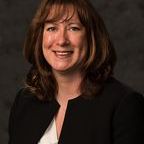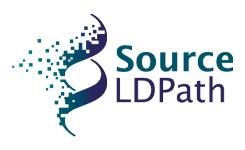Plenary
Albert Norman Keynote Opening Address
Plenary
Albert Norman Keynote Opening Address
2pm – 2.20pm BST, 26 September 2023 ‐ 20 mins
Plenary
Speakers

Debra Padgett MSc, FIBMS, CSci, FAHCS (Hon), RCPath (Hon)
Pathology Head of Service, NENC Pathology Operational Lead, Northumbria Healthcare NHS Foundation Trust
Highlighting the value of diagnostics, promoting the diagnostic workforce and improving diagnostic services
Plenary
Highlighting the value of diagnostics, promoting the diagnostic workforce and improving diagnostic services
2.20pm – 2.45pm BST, 26 September 2023 ‐ 25 mins
Plenary
Speakers

Health and Inequality and how to address it
Plenary
Health and Inequality and how to address it
2.45pm – 3.10pm BST, 26 September 2023 ‐ 25 mins
Plenary
Abstract
Health inequalities are unfair and avoidable differences in health across the population, and between different groups within society. Health inequalities arise because of the conditions in which we are born, grow, live, work and age. These conditions influence our opportunities for good health, and how we think, feel and act, and this shapes our mental health, physical health, and wellbeing. The COVID-19 shone harsh light on the pre-existing health inequalities which persist in our society. It has become increasingly clear that COVID-19 has had a disproportionate impact on many who already face disadvantage and discrimination. The impact of the virus has been particularly detrimental on people living in areas of high socio-economic deprivation, on people from Black, Asian and minority ethnic minority communities and those with a learning disability.
In England, there is a 19-year gap in healthy life expectancy (whether we experience health conditions or diseases that impact how long we live in good health) between the most and least affluent areas of the country, with people in the most deprived neighbourhoods, certain ethnic minority and inclusion health groups getting multiple long-term health conditions 10 to 15 years earlier than the least deprived communities, spending more years in ill health and dying sooner.
The Biomedical Sciences have a significant and pivotal role to play in narrowing the health inequalities gap through Research, Innovation and Life Sciences and its extensive reach across clinical practice within the NHS.
Speakers

Defining biomedical scientists in the NHS Long Term Workforce Plan - the IBMS plan
Plenary
Defining biomedical scientists in the NHS Long Term Workforce Plan - the IBMS plan
3.10pm – 3.30pm BST, 26 September 2023 ‐ 20 mins
Plenary
Speakers

Precision medicine and its impact on health and health delivery
Plenary
Precision medicine and its impact on health and health delivery
4pm – 4.25pm BST, 26 September 2023 ‐ 25 mins
Plenary
Abstract
NHS England established the Genomic Medicine Service (GMS) in 2018 to realise the potential of genomics in healthcare. The NHS GMS built upon the existing NHS infrastructure and used learnings from the 100,000 Genomes Project to embed genomics through a world leading innovative service model from primary and community care through to specialist and tertiary care.
A consolidated national genomic laboratory network was established with seven GMS Alliances working together to support the clinical leadership and embedding of genomic medicine in end-to-end pathways more broadly and the working with other key clinical specialties. Equitable genomic testing is delivered through a single mandated National Genomic Test Directory for improved outcomes in cancer, rare, inherited and common diseases, and in enabling precision medicine and reducing adverse drug reactions.
Working in partnership with Genomics England the delivery of the whole genome sequencing service and ongoing key research initiatives are integral in developing the genomic service. Ongoing evolution of the service through cutting-edge science, research and innovation to ensure that patients can benefit from rapid implementation of advances is critical.
Speakers

Professor Sandi Deans
Director, GenQA, National Laboratory & Scientific Lead, Genomic Implementation Unit NHS England and Professor of Clinical Genomics, Institute of Genetic and Molecular Medicine, University of Edinburgh
Meeting the global challenge of dementia
Plenary
Meeting the global challenge of dementia
4.25pm – 4.50pm BST, 26 September 2023 ‐ 25 mins
Plenary
Abstract
Dementia is the biggest killer in the UK, according to ONS (Office of National Statistics) classification. Globally, 55 million people have dementia, and the number is forecast to rise to 139 million by 2050. It is one of the biggest medical challenges we face and affects healthcare systems, economies, and people on scale. It is also an area where there is opportunity for significant, positive change.
For the first time ever, we now have treatments which have been shown to slow down early Alzheimer’s disease – the most common form of dementia which accounts for around 60% of cases. This breakthrough in dementia research can serve as a catalyst for change.
In the UK, our health and social care system is not ready to deliver these treatments to the right people at the right time. Treatments are coming sooner or later and we need to prepare for them. Timely and accurate diagnosis is key. Although not everyone will be eligible for these treatments, everyone can benefit from improving access to a timely and accurate diagnosis. Alzheimer’s Society is determined to ensure that dementia is recognised as one of the most urgent health and care issues of our time and is calling on the UK government to make dementia a priority.
Speakers

Dr Fiona Carragher FRCPath
Executive Director of Research and Influencing, Alzheimer’s Society
The question I am most often asked - Closing address
Plenary
The question I am most often asked - Closing address
4.50pm – 5pm BST, 26 September 2023 ‐ 10 mins
Plenary
Speakers

Disaster victim identification: A scientific, social and humanitarian responsibility
Plenary
Disaster victim identification: A scientific, social and humanitarian responsibility
4pm – 5pm BST, 28 September 2023 ‐ 1 hour
Plenary
Abstract
Disasters and mass fatalities feature all too frequently in the news, as accidents, the consequences of terrorist activity or the casualties of war. The victims may be recovered and identified in the relative immediate aftermath of the event or it may be weeks, months or years later when their names and deaths are discovered.
This is the work of those involved in disaster victim identification, often difficult, frequently harrowing, but always necessary. These are the people who help to uncover what really happened and help to restore dignity to those whose lives were brutally ended.
In the light of increasing international conflicts the Closing Plenary addresses the subject of disaster victim identity and is an important reminder of a duty of care that extends way beyond what most people could ever imagine
Speakers











